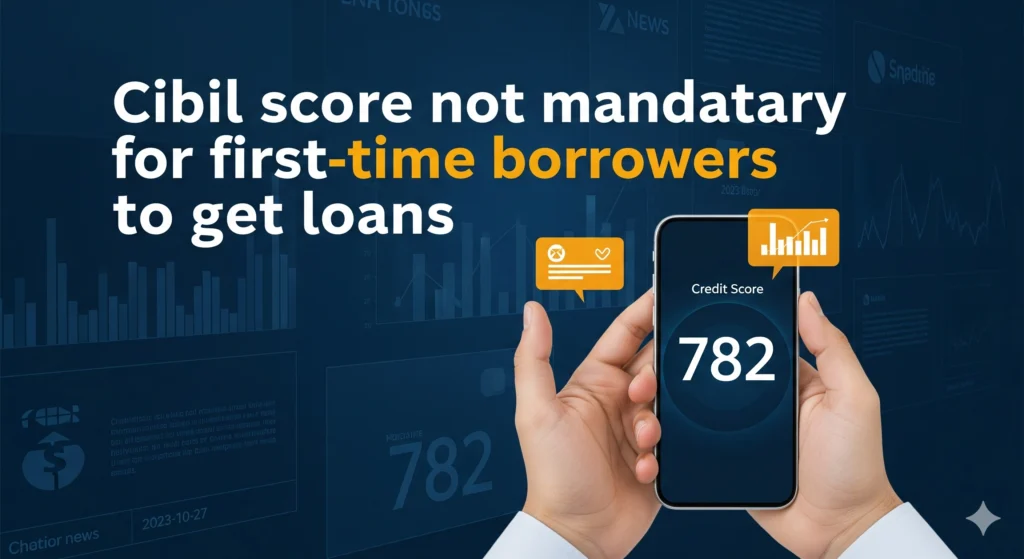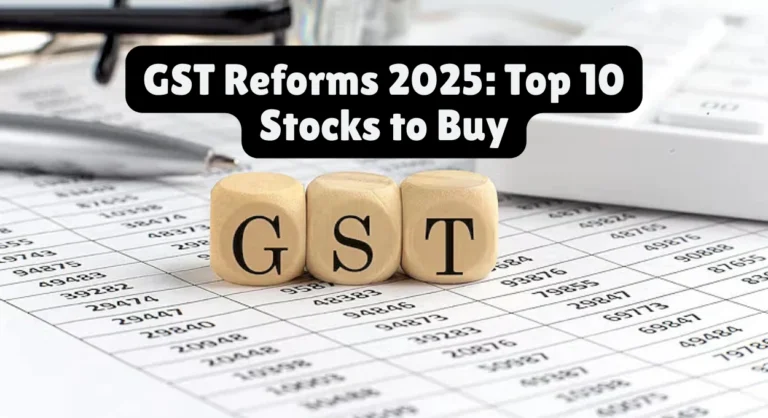No CIBIL Score? First‑Time Borrowers Can Still Get Loans, Says Government
In a major relief for first-time borrowers across India, the Finance Ministry has clarified that banks and financial institutions cannot reject loan applications solely because an applicant lacks a CIBIL score or credit history. The move, backed by recent Reserve Bank of India (RBI) directives, is expected to boost financial inclusion and open credit access to millions of Indians entering the formal lending system for the first time.
Government Clarification
Responding to queries in Parliament, Minister of State for Finance Pankaj Chaudhary confirmed that there is no mandatory minimum CIBIL score requirement for availing a loan. Banks must instead evaluate applications based on alternative factors such as income, job stability, savings patterns, and repayment capacity.
The clarification follows an RBI circular issued in January 2025, urging lenders to adopt a more holistic approach when assessing new-to-credit (NTC) customers. The RBI made it clear that credit reports are only one input and cannot be the sole reason for denial.
Also Read :- Tax Relief on Insurance: GST on Health, Term Plans May Be Cut or Removed
Why This Matters
Until now, the absence of a credit history often created a catch-22 situation for new borrowers—credit was needed to build a score, but a score was needed to get credit. Many applicants, including students, fresh graduates, small business owners, and salaried employees new to the banking system, faced automatic rejections.
“This change removes an unnecessary barrier,” said a senior banking analyst. “The new framework ensures that first-time borrowers are judged on their repayment potential, not penalized for simply being new to the system.”

How Banks Will Assess Borrowers
With CIBIL scores no longer a mandatory filter, banks and Non-Banking Financial Companies (NBFCs) will use alternative evaluation criteria, such as:
- Income stability – verified through salary slips, bank statements, or business turnover.
- Debt-to-Income ratio – checking if borrowers can reasonably handle new EMIs.
- Savings and investments – a sign of financial discipline.
- Employment and age profile – stability and repayment potential.
- Loan purpose – different products (education, housing, business) may have tailored risk checks.
Standard KYC norms and background checks will still apply.
Building Credit History for the Future
While first-time borrowers can now access loans without a CIBIL score, experts stress the importance of building a strong credit footprint for future borrowing. Simple strategies include:
- Using secured credit cards backed by fixed deposits.
- Opting for small consumer durable loans and repaying EMIs on time.
- Exploring BNPL services that report to credit bureaus.
- Taking joint loans with a family member who has good credit.
Timely repayment of even small loans will help borrowers establish a healthy credit score, which can improve access and loan terms in the future.
Also Read :- India’s Bold GST Tax Cut Plan: Revving Up Auto Demand in 2025
Government Schemes for New Borrowers
The government highlighted that several schemes already support first-time and small borrowers, including:
- Pradhan Mantri Mudra Yojana (PMMY) – offering collateral-free loans to entrepreneurs.
- Startup Credit Guarantee Scheme – helping new ventures secure financing.
- MSME-focused lending programs – enabling small businesses to access credit without prior history.
These programs assess applicants based on business potential and income generation rather than past credit scores.
Implications for Financial Inclusion
The move is expected to significantly improve financial access in Tier-2 and Tier-3 cities, where many residents lack formal credit records. It will also help young professionals, students, and entrepreneurs gain funding for education, housing, and business ventures.
By expanding the credit base, analysts believe this clarification could stimulate consumption and investment, supporting broader economic growth.
Bottom Line
The Finance Ministry’s statement, aligned with RBI guidance, sends a clear message: no CIBIL score should not mean no credit. First-time borrowers can now apply for loans without fear of automatic rejection, though they will still need to prove repayment capacity.
For millions of Indians stepping into the credit system, this is a vital first step toward financial independence and opportunity.







